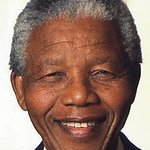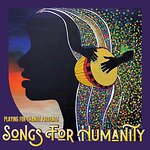A delegation of The Elders is travelling to South Africa this week to honour the memory of their founder Nelson Mandela.
The delegation, led by former UN Secretary-General and Chair of The Elders Kofi Annan, also includes former Finnish President Martti Ahtisaari, veteran UN diplomat Lakhdar Brahimi, former US President Jimmy Carter and former Irish President Mary Robinson.
As part of the official state funeral, they will attend the memorial service for Nelson Mandela at the FNB stadium in Johannesburg on Tuesday 10 December 2013, where they will join fellow Elders Graça Machel and Archbishop Desmond Tutu.
The entrepreneur Richard Branson and the musician Peter Gabriel, who brought the idea of The Elders to Nelson Mandela, will travel to South Africa with the delegation.
“Nelson Mandela redefined leadership,” said Richard Branson in his blog. "He showed that great things can be achieved by leading through wisdom, empathy and integrity, with no other agenda than humanity. He taught the world about the power of forgiveness and the importance of treating everyone equally. His strength was in his compassion, moral courage and a wonderful ability to bring light into any situation. I was fortunate to see the human side of Madiba and his joyous, infectious character.
“He and Graça created The Elders so that his legacy and wonderful works can live on for hundreds of years to come. For as he said: “It is a mistake to think that a single individual can unite the country (or the world).”
“Everyone can keep his spirit alive and spread his unique vision of leadership through wisdom and love, rather than politics and personal agendas.
“Madiba, thanks for your leadership, inspiration, friendship and the joy you brought into our lives. You will be greatly missed.”
Nelson Mandela founded The Elders in Johannesburg on his 89th birthday, 18 July 2007. With the help of Graça Machel and Desmond Tutu, he brought together ten ‘Elders’ – independent, progressive leaders committed to peace, justice and human rights – to work together on global problems including peace-building and reconciliation in war-affected regions, sustainable development and equality for girls and women.






